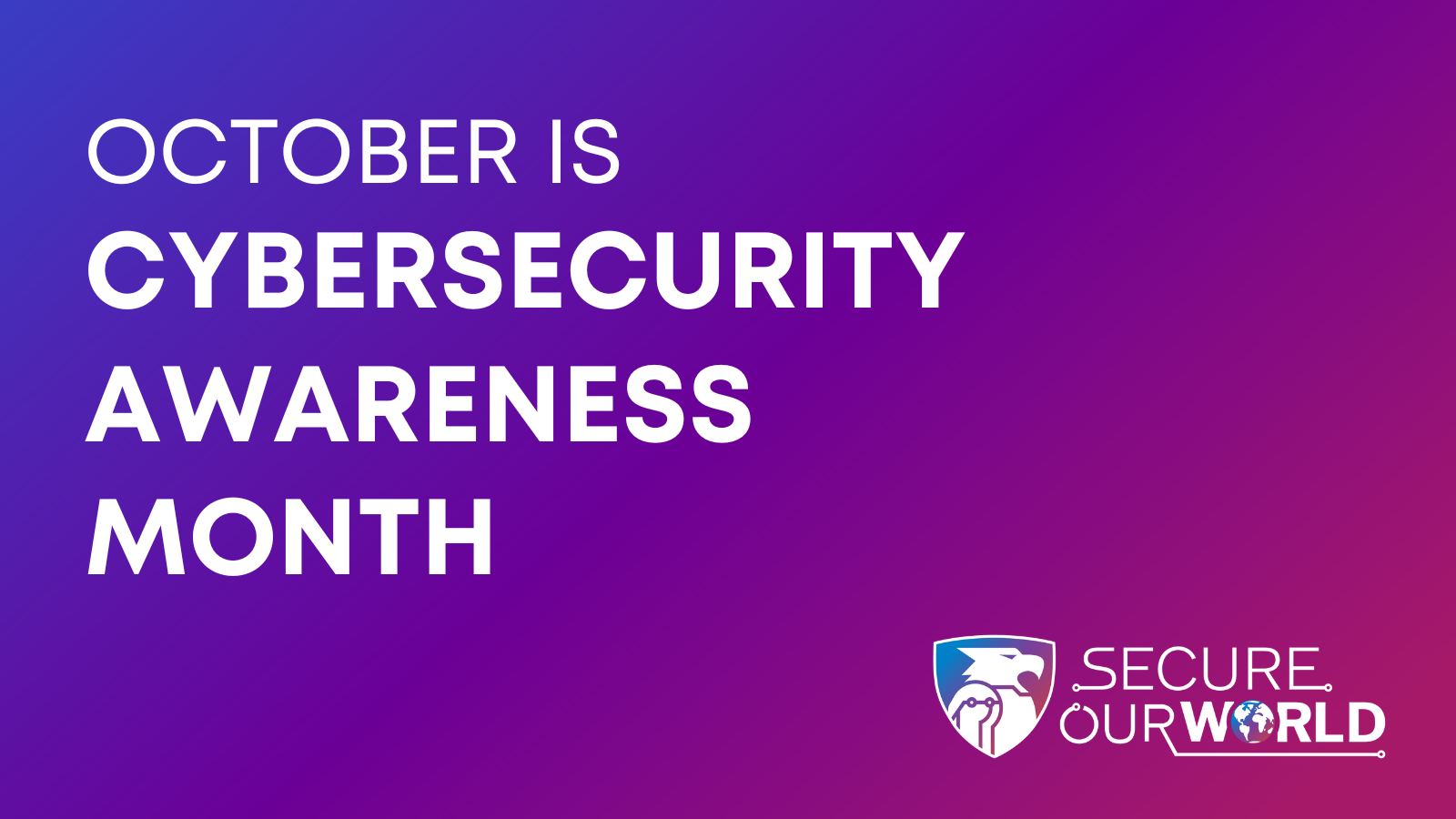It’s Cybersecurity Awareness Month! Here’s What You Need to Know

Do you update your smoke detector batteries twice a year? I know I don’t, but apparently we should, the same way we should be updating our antivirus software twice a year. But cybersecurity is a much more complex issue than just that. In 2004, President George W. Bush and Congress declared October as “Cybersecurity Awareness Month. Now, in its 21st year, Cybersecurity Awareness Month has gone global. While it still provides practical tips for consumers, it has also evolved into a partnership between the U.S. Department of Homeland Security and the National Cybersecurity Alliance (NCA). Together, they discuss everything from education and cybercrime to protecting critical infrastructure and highlighting the importance of cybersecurity for businesses of all sizes.
Like last year, Secure Our World is the theme of Cybersecurity Awareness Month. The purpose of this theme, which was designed by the Cybersecurity and Infrastructure Security Agency (CISA) is to promote the importance of being mindful of cybersecurity on a day-to-day basis, not just this month.
A goal of CISA’s awareness campaign is to help all individuals protect themselves when online or using connected devices. They have published a list of four easy ways to stay safe online. Following these will help:
- Use strong passwords- they should be long, random and unique. Password managers can help you create strong passwords.
- Turn MFA on- Multifactor authentication lowers your chances of getting hacked.
- Recognize & Report Phishing- Think twice before sharing sensitive information with unknown sources.
- Update Software- Turn on automatic updates so you don’t forget!
Morgan Wright, chief security advisor at SentinelOne, commented that this was four years ago, she “would have addressed the need for security awareness, more training, better passwords, vulnerability management, and patching (…). Today, the stakes couldn’t be higher. Persistent attacks by nation-states like China, Russia, Iran, and North Korea against our critical infrastructure have redefined what failure means. It’s no longer about monetary or data loss; a failure today means power, water, communications, public safety, and many of our vital infrastructures.”


